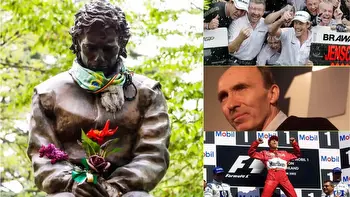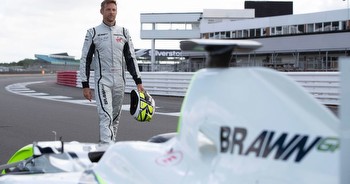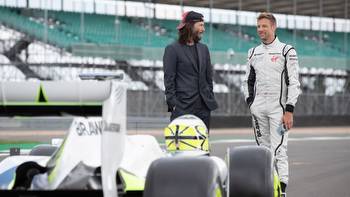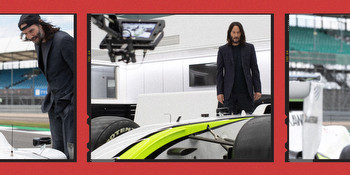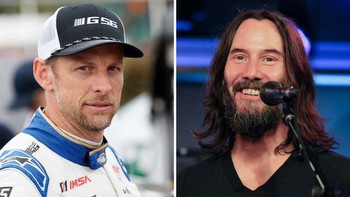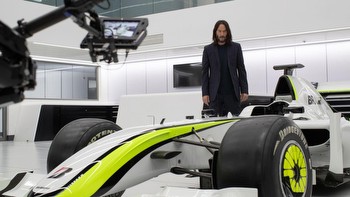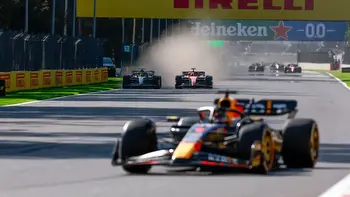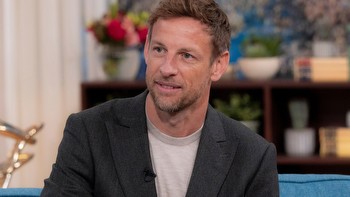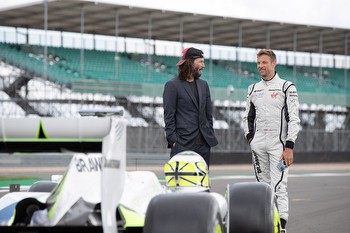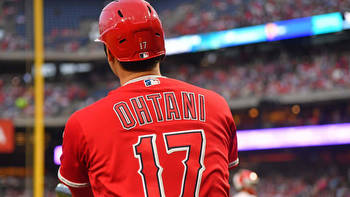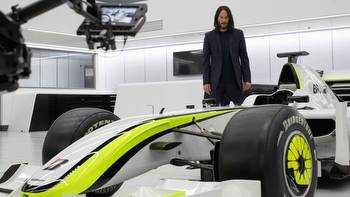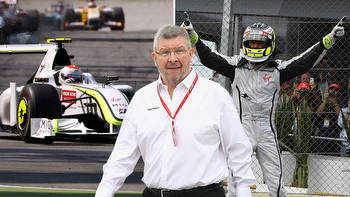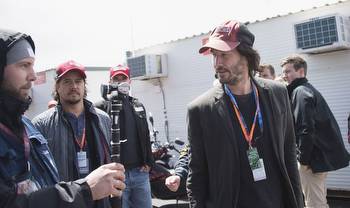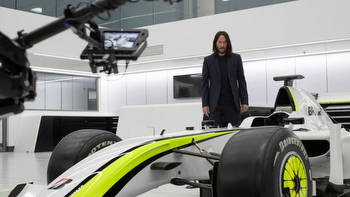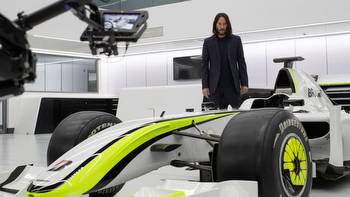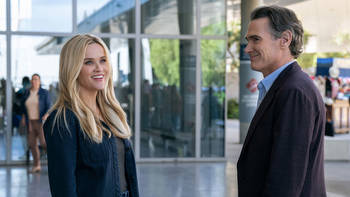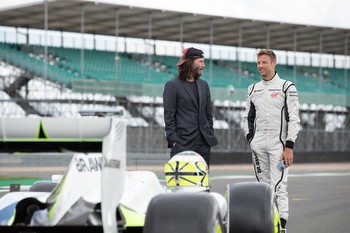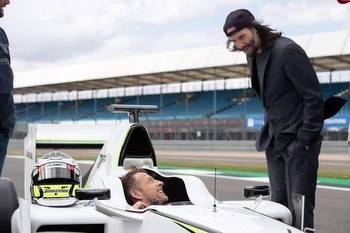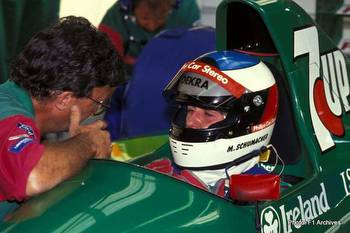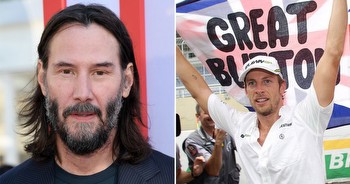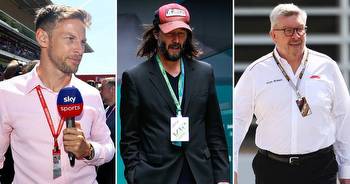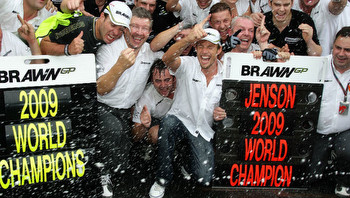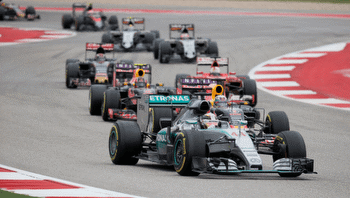Brawn: The Impossible Formula 1 Story review
How to make your sports documentary stand out, when there seems to be a new show revisiting an incredible competitive achievement every week? Disney’s new four-parter is about a motor racing team coming from nowhere to vie for the sport’s biggest prize, and its choice of presenter comes from nowhere too: it’s Keanu Reeves! The show has something unique to turbo-charge its word-of-mouth appeal. Have you seen Brawn: The Impossible Formula 1 Story? You know, the Keanu Reeves one.
Reeves, who emerges from darkness at the start of each episode with cinematic grandeur, but is a puppyish amateur when interviewing sportspeople, is a distracting but not destructive presence as the impossible story of the title is told. In the 2009 Formula One motor racing season, the unfancied Honda team was to be run by notoriously wily pit boss Ross Brawn and suave, capable CEO Nick Fry. But they were threatened with not being able to take part when, in the aftermath of the global financial crash, Honda scrapped its F1 operation. Brawn and Fry effected a management buyout, purchasing the team for £1 and re-emerging as a new outfit, Brawn GP.
Brawn GP had a minuscule budget compared with its blue-chip rivals. Yet as soon as qualification began for the opening race of 2009, McLaren, Ferrari and the rest realised something was up. Thanks to a clever aerodynamic innovation – the “double diffuser” – the Brawn car was the quickest on the track. Brawn GP driver Jenson Button won the race, then won five of the next six. Pandemonium ensued, as a team that had been an outsider became the title favourite other teams wanted to shoot down, which they tried to do by claiming the double diffuser was in breach of the sport’s regulations. Meanwhile, Brawn GP was living hand to mouth, constantly fighting to secure anything like the sponsorship funds other teams had.
As deals are signed, tribunals are convened and backs are stabbed, the weaknesses F1 has as a sport cause problems for the documentary. Rarely is a race decided by who the best driver is: the sporting element is a small part of a competition based on business, politics and the esoteric micro-details of car design. Signing Reeves as a presenter is presumably meant to attract viewers who aren’t F1 fans, but only F1 fans are likely to be interested in the minutiae of how Brawn GP hit the front – and the amount of money in F1 makes it hard to buy Brawn’s ascent as the plucky underdog triumph the series tries to sell. Yes, they were winning against the odds, but in F1 that means they didn’t have quite as many millions of pounds as everyone else.
Reeves, then, is there to humanise the story. He has numerous adorable habits that most interviewers would deem unprofessional, but which don’t offend. If an interviewee says something mildly controversial, he holds his hand in front of his mouth, like a primary-school child who’s just heard the word “poo”. By contrast, though, he’s not afraid to swear in front of the sport’s most august figures. “And so you walk in that room with Ross,” Reeves says at one point to Nick Fry, “and they’re like, what the fuck?”
The actor’s lack of experience as an interrogator is apparent, but he gets his interviewees to open up. He often asks an emotion-based question – how did someone feel about what they did, rather than just what did they do – which might, along with the sheer sensory overload of meeting Keanu Reeves, account for the number of wobbly lips and cracking voices there are as the motor-racing elite relive their most dramatic hours.
It takes a couple of episodes to acclimatise to how Keanu Reevesy the programme is – fortunately, by that point a proper sporting story has emerged that is gripping enough to stand up on its own. The second half of the season sees the dashing Button, leading the championship but no longer in possession of the best car (every vehicle has a double diffuser now), falter by driving too aggressively. His teammate, the stoutly determined Brazilian, Rubens Barrichello, starts to reel him in. The climax of the season is one of those F1 moments where victory depends on psychology, not technology: the flustered Button has to find something extra within himself as he lines up for the penultimate race – in Brazil, Barrichello’s home turf.
The programme smartly chooses this moment to insert Button’s backstory, a lifetime spent trying to make his father, John, who died in 2014, proud. Remembering that day in Brazil that everything else had been leading up to, Button has tears in his eyes. He tells Keanu Reeves all about it.

